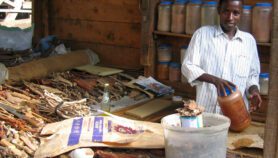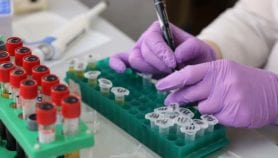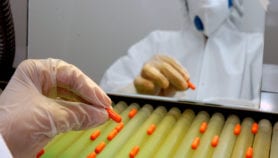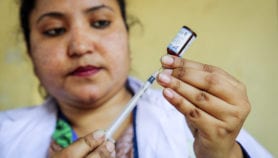By: Toufik Bougaada
Send to a friend
The details you provide on this page will not be used to send unsolicited email, and will not be sold to a 3rd party. See privacy policy.
[ALGIERS] The Algerian parliament has approved a bill to spend 100 billion Dinars (US$1.48 billion) on science over five years.
The budget — unusually high for the Arab world — "aims at reversing brain drain and bringing our scientists back home," Abdelhafid Awrag, head of the Scientific Research Department at the country’s Ministry of Higher Education and Scientific Research, told SciDev.Net.
Approved last month (23 May), the bill will allow the country to double its expenditure on scientific research, from 0.5 to one per cent of its GDP — way ahead of the 0.2 per cent average in Arab countries, according to Awrag.
Some 34 research programmes will be implemented during the first phase of the project, while the number of scientific researchers will increase from 21,000 to 28,000 and the number of scientific labs to 1,200 in five years, said Awrag.
"This will still be below the European standards of 600 researchers per million people, but it represents a huge step forward," he said.
Funded programmes will cover areas such as agriculture, health and energy, with emphasis on applied research and technology.
Academic sources said that around 150 talented researchers working in Canada, Europe and the United States have expressed their will to return home, but they are still waiting for the assurance that they and their families will be secure and economically comfortable.
Ali Bougaroura, rector of Mila University, told SciDev.Net that the new project "will allow a quantum leap in scientific research because it reduces bureaucracy and gives research centres more autonomy in decision-making, especially regarding financing projects".
But he said there was no need to reverse brain drain in the age of virtual communication.
"Algerian researchers can actively participate in national research programmes without the need to permanently live in Algeria," he said. "Their presence in developed countries is more valuable, from where they can transfer knowledge and expertise to their peers at home."
Jaffal Ammar, a lab director at the University of Algiers, said: "Bureaucracy is the main obstacle to the development of scientific research".
"Sixty per cent of the research budget is allocated to administrative expenses, and scientific research in Algeria won’t advance in the absence of a political will to give researchers enough autonomy to act," he said.
"We need to establish a database of researchers and their expertise, and close the gap between academic research and the real needs of the economy," he told SciDev.Net.
Two weeks ago (30 May) the Ministry of Higher Education called researchers to submit proposals which will be evaluated by an international expert committee. Two-year contracts will be signed with researchers in November.













